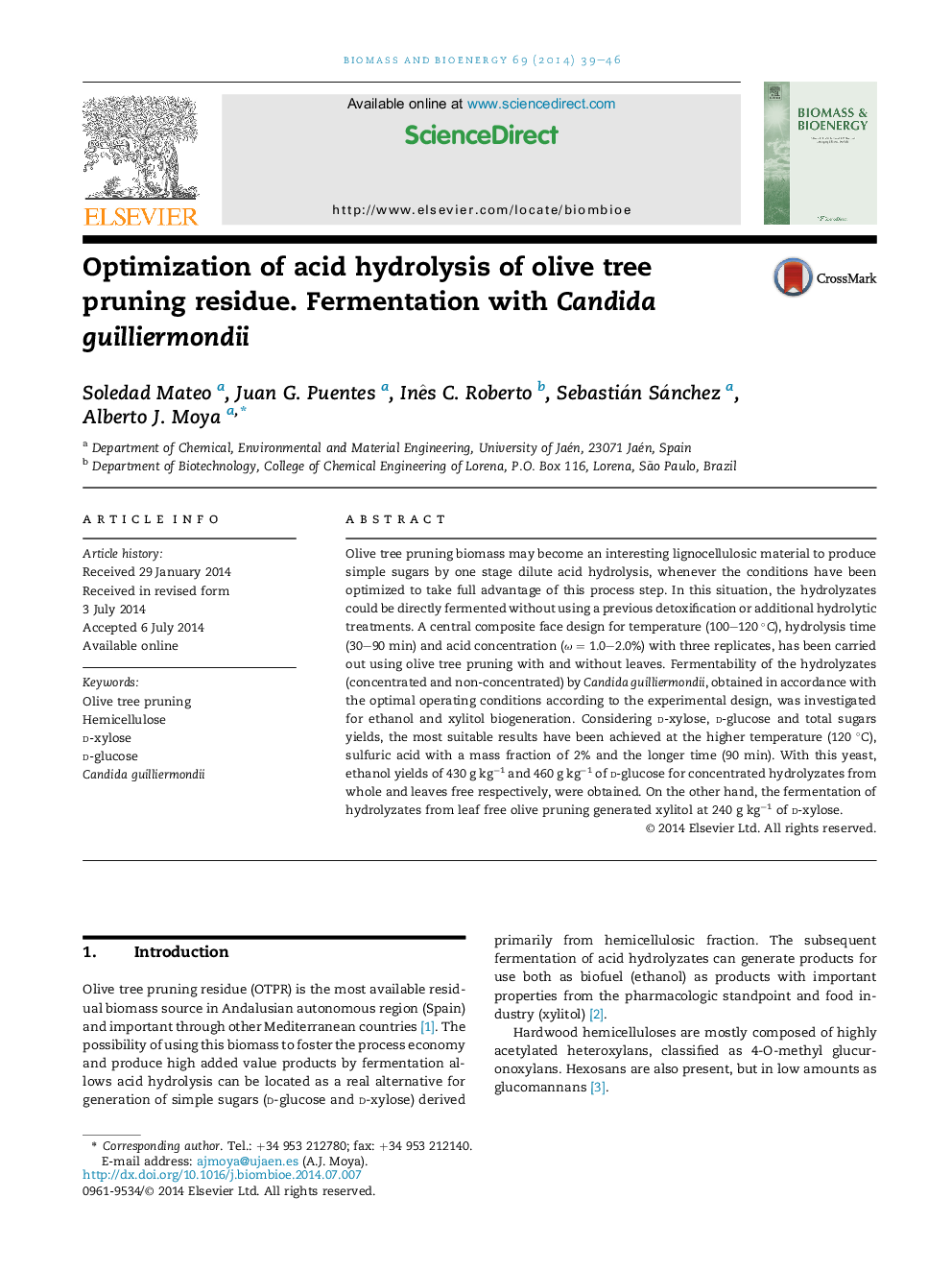| Article ID | Journal | Published Year | Pages | File Type |
|---|---|---|---|---|
| 7064286 | Biomass and Bioenergy | 2014 | 8 Pages |
Abstract
Olive tree pruning biomass may become an interesting lignocellulosic material to produce simple sugars by one stage dilute acid hydrolysis, whenever the conditions have been optimized to take full advantage of this process step. In this situation, the hydrolyzates could be directly fermented without using a previous detoxification or additional hydrolytic treatments. A central composite face design for temperature (100-120 °C), hydrolysis time (30-90 min) and acid concentration (Ï = 1.0-2.0%) with three replicates, has been carried out using olive tree pruning with and without leaves. Fermentability of the hydrolyzates (concentrated and non-concentrated) by Candida guilliermondii, obtained in accordance with the optimal operating conditions according to the experimental design, was investigated for ethanol and xylitol biogeneration. Considering d-xylose, d-glucose and total sugars yields, the most suitable results have been achieved at the higher temperature (120 °C), sulfuric acid with a mass fraction of 2% and the longer time (90 min). With this yeast, ethanol yields of 430 g kgâ1 and 460 g kgâ1 of d-glucose for concentrated hydrolyzates from whole and leaves free respectively, were obtained. On the other hand, the fermentation of hydrolyzates from leaf free olive pruning generated xylitol at 240 g kgâ1 of d-xylose.
Related Topics
Physical Sciences and Engineering
Chemical Engineering
Process Chemistry and Technology
Authors
Soledad Mateo, Juan G. Puentes, Inês C. Roberto, Sebastián Sánchez, Alberto J. Moya,
